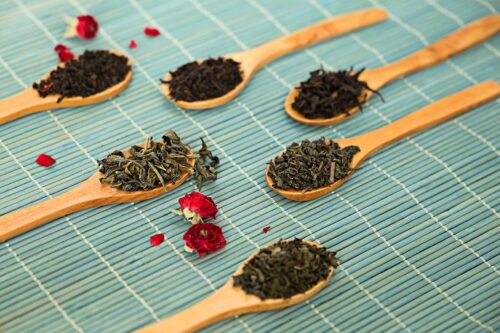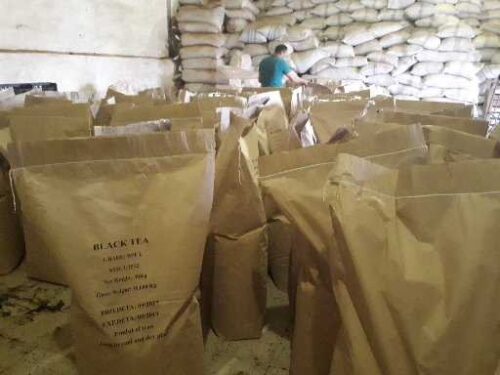international markets of Iranian tea
September 14, 2024In Iran's tea industry, which is one of the old and original heritages of this land, the name of Mr. Peyman Mohsenkhah, CEO of Aftab Pardis Shamal Company, is seen as one of the pioneers of Iranian tea export. With a rich experience in the business field and a special passion for tea products, he has played an important role in the introduction and development of Iranian tea export markets. In the following, an interview was conducted with him, which examines the challenges, opportunities and importance of Iranian tea export.

Getting familiar with Mr. Peyman MohsenKhah: a path from Gilan to the globalization of Iranian tea.
Mr. Peyman Mohsenkhah, CEO of Aftab Pardis Shamal Company, is one of the well-known and successful figures in the field of Iranian tea export. He was originally born in Gilan province and a region that is famous for tea production in Iran. This deep familiarity with tea and its culture, along with his interest in trade and commerce, led him to export this valuable product.
After working for several years and gaining experience in various business fields, he finally founded Aftab Pardis Shamal Company. Focusing on the export of Iranian tea, this company managed to establish its position in international markets and export high-quality Iranian products to different countries.
Mr. Mohsenkhah believes that product quality, attention to ethical principles in business, and adherence to cultural and local values are the factors that have made his company successful in the field of global competition. He has also always tried to use his experiences and knowledge to play an effective role in promoting Iran's tea industry and introducing it to the world.
The beginning: a passion that turned into a career.
Mr. Peyman Mohsenkhah, a native of Gilan and with a master's degree in commerce, originally comes from a region that is the cradle of tea production in Iran. From the very beginning of his youth, he got acquainted with the tea scene in the north of the country and this familiarity led him to export tea. This personal interest eventually led to the establishment of Aftab Pardis Shomal Company; A company that is known today as one of the prominent names in the field of Iranian tea exports.

World markets: the popularity of Iranian tea in the world
How is tea consumption in other countries? Is there an increase or decrease in this trend?
Mr. Mohsenkhah believes that Iranian tea is very popular in many countries of the world, including European, Asian and even India. The natural and organic quality of Iranian tea has made this product qualitatively similar to Indian tea. For this reason, Iranian tea can be introduced as a product with high potential in world markets. It is interesting to know that even India uses Iranian tea for export to other countries.
Challenges and key points in the export of Iranian tea
In another part of the interview, Mr. Mohsenkhah mentioned the challenges in exporting Iranian tea. Considering problems such as sanctions and banking issues, he emphasized that this path requires a lot of patience and effort. However, he advised those interested in entering this field that if they have patience and perseverance, this path can be very attractive and profitable. According to him, Iranian tea has many fans in the world markets due to its similarity with Indian and Chinese teas as well as its competitive price and is attractive to many businessmen.
Tea quality: how to distinguish high-quality tea?
One of the topics discussed in this interview was how to distinguish high-quality tea from other teas. Mr. Mohsenkhah explained that the most important factor in this field is the health of tea. He recommended to use natural teas that are prepared without additives and color help. He also mentioned a simple test at home: if the brewed tea does not change color after a few hours, it is a sign of quality and the absence of chemicals.
Appearance of tea and brewing time: other signs of quality
Next, Mr. Mohsenkhah answered a question about distinguishing high-quality tea from its appearance. He stated that it is very difficult to distinguish high-quality tea from its appearance, and even in the laboratory there may be challenges. The best way to diagnose is a simple test that is done by brewing tea and checking its changes after a few hours.
He also mentioned the issue of tea brewing time and explained that natural teas need between 8 and 10 minutes to color. Teas that color before this time are usually produced using chemicals, either in granular or liquid form.
Iranian tea, a product with global potential
This interview showed that Iranian tea has a high potential to be introduced to global markets due to its natural and organic characteristics. However, it takes a lot of effort and patience to succeed in this path. Emphasizing the importance of quality in the production and export of tea, Mr. Peyman Mohsenkhah pointed out the prominent role of Iran in the world markets and offered recommendations for those interested in this field.
Aftab Pardis Shamal Company, under his management, has been able to export Iranian tea to different countries and highlight Iran's name in this field by using its expertise and knowledge. Exporting Iranian tea is not only an economic opportunity, but also a cultural mission to introduce one of the most authentic products of Iran to the world.
